- Home
- James A. Michener
Iberia
Iberia Read online
“THIS BOOK WILL MAKE YOU FALL IN love with Spain.… Michener writes with a delightful sense of continuing discovery and curiosity, and a sustaining affection for his subject.… kaleidoscopic.… Michener’s account of Spain is both satisfying and convincing.”
The Houston Post
“VINTAGE MICHENER … CLASSIC SPAIN … Michener has captured the Spanish character in print as surely as Vavra has done it on film.”
St. Louis Globe-Democrat
“A BOOK … TO KEEP AND TREASURE.”
San Francisco Examiner
“MASSIVE, BEAUTIFUL.… Unquestionably some of the best writing on Spain … the best that Mr. Michener has ever done on any subject.… the ideal companion.… stunning.… memorable.”
The Wall Street Journal
A Fawcett Book
Published by The Random House Publishing Group
Copyright © 1968 by Random House, Inc.
All rights reserved, including the right to reproduce this book or portions thereof in any form under the International and Pan-American Copyright Conventions. Published in the United States by Ballantine Books, an imprint of The Random House Publishing Group, a division of Random House, Inc., New York, and simultaneously in Canada by Random House of Canada Limited, Toronto.
Fawcett is a registered trademark and the Fawcett colophon is a trademark of Random House, Inc.
www.ballantinebooks.com
eISBN: 978-0-307-83416-4
Maps by Jean Paul Tremblay
A Selection of the Book-of-the-Month Club, July 1968
v3.1
CONTENTS
Cover
Title Page
Copyright
I INTRODUCTION
II BADAJOZ
III TOLEDO
IV CORDOBA
V LAS MARISMAS
VI SEVILLA
VII MADRID
VIII SALAMANCA
IX PAMPLONA
X BARCELONA
XI THE BULLS
XII TERUEL
XIII SANTIAGO DE COMPOSTELA
ACKNOWLEDGMENTS
Other Books by This Author
I
INTRODUCTION
I have long believed that any man interested in either the mystic or the romantic aspects of life must sooner or later define his attitude concerning Spain. For just as this forbidding peninsula physically juts into the Atlantic and stands isolated, so philosophically the concept of Spain intrudes into the imagination, creating effects and raising questions unlike those evoked by other nations. During the four decades that I have traveled in Spain I have always wanted to describe the impact this vibrant land has had upon me, and now I have an opportunity to do so.
Did any traveler ever enter Spain in a more appropriate manner than I? While a student in Scotland, I had shipped as chart boy aboard a Clydeside freighter which lugged coal to Italy and brought back oranges from Spain to be used in the marmalade factories of Dundee. We sailed from Glasgow, buried in coal dust, as ugly a little tramp steamer as ever skirted the Bay of Biscay. Against headwinds we made only ninety-six miles a day, pitching and tossing the while, so that I was well fed up with the trip before we ever saw land. Then out of the Atlantic we spotted Cabo Finisterre off the port bow, and for much of one stormy day we kept it in view, a tantalizing taste of Spain, solid, dark, mysterious, looming out of the gray waves.
As our freighter rose and fell in the troughs this glimpse of land began to haunt me. More than anything else in the world I wanted to see the Spain of which Finisterre formed the western rampart. Past this point three and a half centuries ago Sir Francis Drake had come to harry Spanish shipping and to burn Spanish ports. Here the Armada had formed for its assault on England, and the headland as I saw it that stormy day was well suited to historic purposes. It was dark, heavy, unlike anything I had previously seen. It was in truth land’s end, the western promontory of the European continent, and it challenged the mind.
Well, we left Finisterre and plowed our way monotonously south, and a long time later, when I had grown accustomed to the pitching of our uncomfortable freighter, we steamed into the Straits of Gibraltar and I saw, again to port, the sun-drenched uplands of Algeciras, and they were so different from what I had seen in the storm off Finisterre, so inviting and so startling in the vividness of their color, that I again felt the urge to flee that ship and go ashore, forgetting Italy, which had been the purpose for making this trip.
But we left Gibraltar behind us, then Mallorca, then Corsica, and finally we emptied our coal at ancient Civitavecchia, that dreariest of all Italian ports, where Michelangelo had once served as city architect in charge of fortifying the harbor and where Henri Beyle had spent long years as French consul, publishing his reflections under the name of Stendhal. He and Michelangelo distracted me for a while, but often as I traveled over Italy on leave from the coal barge I recalled those two fleeting glimpses of Spain and longed for the day when our empty ship would sail into some distinguished port like Valencia or Barcelona to pick up our oranges. I imagined myself striding ashore to inspect at first hand the greatness which I felt sure existed in that dour land. The captain of the freighter wasn’t certain which of the ports we would head for, but trusted Glasgow to advise him by the time we reached Mallorca.
When we were abeam of that island the wireless finally spoke: ‘Castellón de la Plana,’ and the captain was pleased. ‘Beautiful little city,’ he said.
I ran to my charts and found that Castellón lay between Barcelona and Valencia, the actual city being some two miles or more inland from the harbor. It was a major port for the shipping of oranges and traditionally the scene of Spain’s first fair of the year, at which the opening bullfights of the season were held. ‘Castellón is one of the best places in Spain for beginning a visit,’ the captain assured me.
During the passage from Mallorca to the mainland I memorized the shipping instructions contained in Pilot for the East Coast of Spain and prepared myself spiritually for my entrance to the country by rereading the best passages of Don Quixote. But on the last evening we received a wireless directing us to avoid Castellón de la Plana and to proceed instead to the tiny village of Burriana, where oranges were awaiting us.
‘Burriana has no harbor!’ I protested, for the Pilot said: ‘Ships anchor in the roads and prudent ones keep a sharp watch on their lines.’
‘They barge the oranges out to us,’ the captain explained.
‘Then we don’t land?’
‘No.’
My disappointment was so apparent that he added, ‘But you can ride ashore on one of the barges and join us next week in Valencia.’
I had rarely heard finer words, and all that night I stayed on deck, waiting to catch my first glimpse of the point at which I would enter Spain, but no lights showed, and finally in the east, over Mallorca, which we had left astern, the sun began to rise and a soft Mediterranean beauty suffused the air.
My first view of Burriana? It wasn’t a view. It was a smell, for the offshore breeze carried to our dirty little freighter the odor of orange blossoms, heavy and pungent and inescapably the odor of Spain. Then, in the direction from which this superb aroma came, I saw the low shore begin to rise from the waves and with incredible swiftness present itself. Our ship slowed. The anchor chains went out. Lines were thrown to men in rowboats, who attached them to buoys, and gradually we swung in to the current, ready to receive whatever cargo awaited us.
It was than that I saw the immemorial aspect of Spain, and my introduction in the minutes that followed was so perfect that it still stands for me as a permanent vision of Spain. Later I was to see the bullfights in Ronda and the cathedral at Santiago de Compostela and the roomful of Velázquez paintings at the Prado, and the pass at Roncesvalles where Roland perished and the
great, bleak olive orchards of Badajoz and the Holy Week processions in Sevilla. I was to see the Spain that men have written about for two thousand years, but seldom would I see anything so representative of Spain.
Since the little farming village of Burriana had no harbor curving out to protect the shore, it could have no pier; storm waves driving in from the east would periodically destroy attempts to maintain a quay. So the huge barges which conveyed the oranges to the freighter had to be loaded ashore. Each barge was hauled onto dry land and crammed with barrels containing oranges until it must have weighed several tons.
‘Why barrels?’ I asked, watching the procedure with binoculars. ‘They are barrels, aren’t they?’
‘Steel barrels.’
‘Why?’
‘You’ll see.’
Obviously, when the barges were loaded they had to be dragged back into the water in order to be floated so that they could be rowed out to our ship. How to do it? In Roman times businessmen using this coast for the transfer of freight to Italy had solved the problem. They reared a breed of oxen that thrived in salt water, and now these huge beasts, working in the sea with often only their eyes and horns visible, backed close to a barge while workmen attached chains to their harness. Then with men who also lived mostly in the sea whipping at them and cursing, the great beasts strained while everyone ashore pushed on the barge. Slowly, slowly the near-swimming oxen and the men and the shouting got the barge moving. Slowly it left the shore. The massive oxen moved deeper and deeper into the sea, so that men directing them had to keep afloat by grasping the oxen’s horns, and in this way the oranges in their steel barrels were ferried out to our ship.
The first Spaniard I ever met was a workman of Burriana, dressed only in a breechcloth, swimming to meet me with his left hand grasping the horn of an ox. He was a poor man and existed only by this brutal work, which kept him half submerged all day, but he had the face of a satyr rising from a swamp, and when I first saw him he was laughing. His skin was bronzed like leather and he had not shaved for some days. He had enormous arms and very quick eyes and saw at once that I was a stranger, perhaps an American, who might pay for a ride ashore in his barge. In a guttural voice using a Valencian argot, he grunted at me. Of the first sentences spoken to me in Spain I understood not a single word.
I did understand, of course, that he was proposing to carry me ashore in his barge, for a fee. I agreed and started to climb into the barge, but our captain interrupted. ‘There’s no point in going ashore now. It’s only five o’clock. No buses to Castellón yet.’ He was right, so to the disappointment of the bargeman I said I’d wait.
‘But only me,’ he insisted in words I did understand. ‘Not those other …’ He indicated the next barge coming to our ship, and I wished I had enough command of the Valencian dialect to understand his profane description of his competitors. It must have been extreme, because when he repeated it for the benefit of the incoming crew they threatened him. But he laughed.
Till the sun was high I stayed on deck, watching the nautical oxen of Burriana haul loaded barges, then talking with the rugged men who brought the barges to our freighter, but each time my satyr returned he renewed his contract with me. ‘When I go ashore I’ll go with you,’ I assured him. I would have been afraid to go with another.
I now discovered why the oranges were being delivered in steel drums, for the captain directed that a hose be thrust down into the Mediterranean where the water was clear, then ordered the deck hands, ‘Knock out the bungs,’ and presently all the drums were opened and I saw that the oranges inside had been cut in half. The resulting juice, of course, did not fill the barrel, and the empty space was now to be filled with sea water.
‘What’s the idea?’ I asked.
‘Everything sloshes back and forth, all the way home to Dundee,’ the captain said.
‘To accomplish what?’
‘It prepares the rind for making marmalade.’
There were two schools of thought aboard our ship. The captain held that the action of salt water ate away the pulpy part of the rind and left the skin translucent, as required in the better brands of marmalade. The pulp and juice would be thrown away. ‘Nonsense,’ one of the deck hands argued. ‘Everything in that barrel is mixed with sugar and then boiled down to make that bittersweet taste of true Dundee marmalade. Without the salt water it wouldn’t be worth a damn.’
A tugging at my sleeve reminded me that my laughing satyr was back, and this time I allowed him to lower me into his barge, now empty of drums. He had arms like some prehistoric man, and to him I was a child. His animals were unlike any I had ever seen before, and together we moved toward the shore of Spain. When I saw the process of launching the barges close up I was appalled at the energy required. It was medieval or worse. It was an expenditure that I could not comprehend and it continued all day and all year, men and animals working themselves to death.
But the men thus engaged were so handsome, their smiles so compelling that there was something different about them, something powerful and stoic. This was their lot and they would not complain. Ashore some were having breakfast and they invited me to join. I knew that I was taking someone’s share, but I could not resist such an opening meal in my new country and I paid my bargeman for my share of food. I can taste it yet: anchovies, which have always been my delight, hard bread, harder cheese and red wine. How good it was, how honest in its Spanish quality.
I wondered if any previous traveler to Spain had entered through this nonexistent Burriana? Later I was to enter through many different ports, but none has ever compared with the beauty of that first morning, nor with its significance. Because in subsequent years, no matter how superficial my visits might be or my reactions to them, I could rely on the fact that at the beginning, if only for a moment, I had been allowed to see deep into the quality of Spain. I saw the toiling men, the congenial peasants, the straining beasts, the honest food. I smelled the salt of the shore, the oranges of the inland fields, the burning chicory that passed for coffee, the sourness of the red wine, the harsh seductiveness of cheap anchovies. It is this Spain that has been with me through the years, and whenever in subsequent visits I have again come close to that particular vision I have felt at home.
Thirty-five years ago the road from Burriana to Castellón de la Plana ran through orange groves, at the end of which stood the charming little city that was immersed in festival when I saw it for the first time. For two days I enjoyed about as fine an introduction to Spanish life as a young man could have, for it was the custom in Castellón in those years to conduct the traditional evening parade along unique lines. In the center of town, as in all Spanish localities, unattached men walked round and round the plaza in a counterclockwise direction while unmarried girls walked arm-in-arm in the opposite direction, so that in any one complete transit a man who kept to the outer circle was constantly staring into the faces of beautiful girls, each of whom he would encounter twice. I know it is difficult for people who have never courted in this way to believe how easy it is to conclude understandings in two hours of such parading, but when one has actually participated in the constant meeting and judging and winking and nodding that takes place, he knows how effectively the courtship is conducted.
Well, this evening paseo is the same in all Spanish small towns and in some large ones too, but Castellón added a feature which was most attractive. Only half the girls paraded in the square. The other half rested in balconies overlooking the promenade, from which they threw down onto the men passing below small darts trailing colored streamers. Since I had been easily recognized as an American, not many of whom got to a place like Castellón in those days, I found myself the target of many such darts and I brushed them away.
‘Stupid!’ a harsh laughing voice sounded, and I turned to see that the satyr bargeman who had ferried me ashore that morning was walking behind me and explaining in a proprietary manner who I was. ‘Stupid!’ he repeated, gathering up the darts which I had bru
shed from my clothing. He explained that it was not the darts but the colored streamers that were important and must be saved. ‘Because,’ he said in Spanish that I only half understood, ‘at the end of the parade you are entitled to visit any balcony decorated in the colors matching the streamers you hold.’
We paraded as a team, and when I saw my bargeman in ordinary clothes and shaved I realized that he was not much older than I and already his thundering life in the surf hauling immense weights had made him an old man. We collected many darts that first night, and when the music stopped he led me to one balcony after another, and we danced and drank and ate anchovies and met the beautiful and shy girls who had pinned us with their streamers. Since I was a stranger, and what was worse, probably a Protestant, the older women of the houses kept severe watch on me, but the bargeman whispered that any girl of Castellón who had even a little intelligence would know how to slip down into the square, and he was right.
Later that night he led me to a corner where two girls waited, and the four of us went to a vaudeville show, where the bargeman insisted upon paying for the tickets. I tried to prevent this, knowing that I could afford the money better than he, but in true Spanish style, as if he were a nobleman of the grand school, he flashed the money I had paid him that morning for the ferry ride ashore and said loudly, if I understood his Spanish correctly, ‘He paid this morning. Tonight I pay.’
I remember the entertainment for two reasons: there I saw my first zarzuela (brief light opera) and was captivated by it; and in the vaudeville portion I watched two robust comedians who, whenever they wanted an extra loud laugh, announced that they had come from Burriana. At each mention of my nonexistent seaport the crowd roared. It was like comedians in New York who coax cheap laughs by saying they’re from Brooklyn or those in Chicago who achieve the same effect by being from Peoria. Apparently every community has a neighbor which it regards as ridiculous and I had chosen for my landing place in Spain a town that was the butt of the coast between Castellón and Valencia. My bargeman did not laugh at the jokes nor did I.

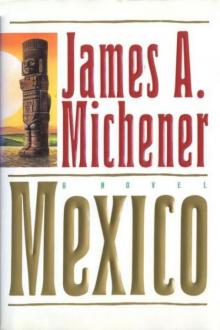 Mexico
Mexico The World Is My Home: A Memoir
The World Is My Home: A Memoir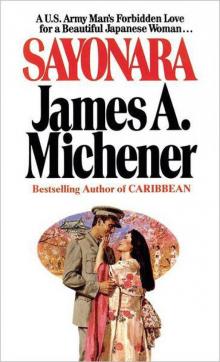 Sayonara
Sayonara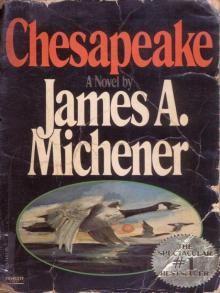 Chesapeake
Chesapeake The Novel
The Novel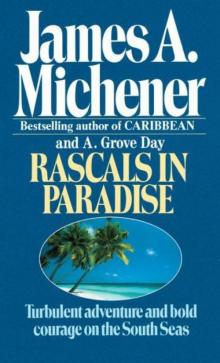 Rascals in Paradise
Rascals in Paradise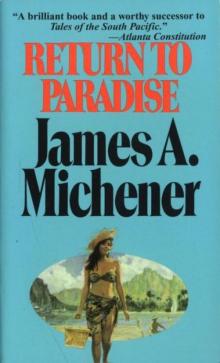 Return to Paradise
Return to Paradise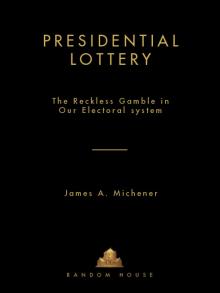 Presidential Lottery: The Reckless Gamble in Our Electoral System
Presidential Lottery: The Reckless Gamble in Our Electoral System The Source
The Source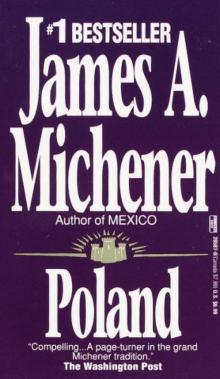 Poland
Poland Space
Space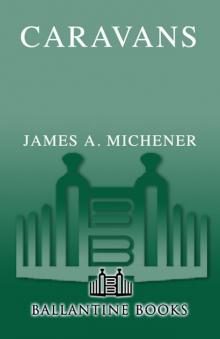 Caravans
Caravans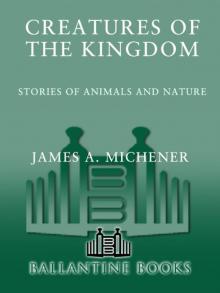 Creatures of the Kingdom: Stories of Animals and Nature
Creatures of the Kingdom: Stories of Animals and Nature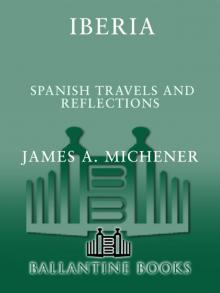 Iberia
Iberia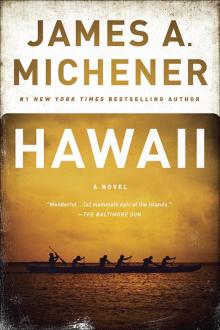 Hawaii
Hawaii The Watermen: Selections From Chesapeake
The Watermen: Selections From Chesapeake Report of the County Chairman
Report of the County Chairman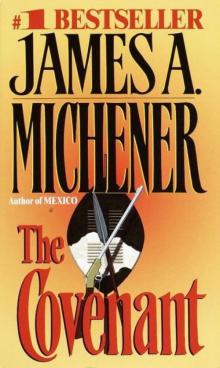 The Covenant
The Covenant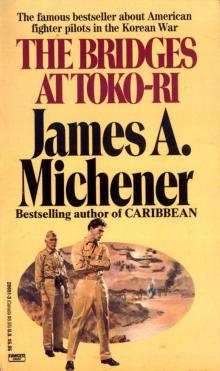 The Bridges at Toko-ri
The Bridges at Toko-ri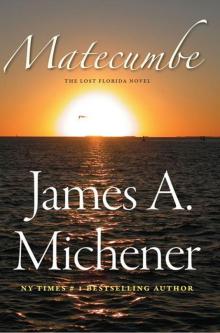 Matecumbe
Matecumbe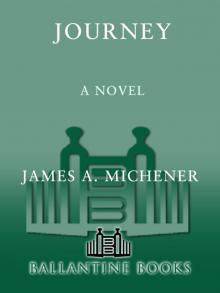 Journey: A Novel
Journey: A Novel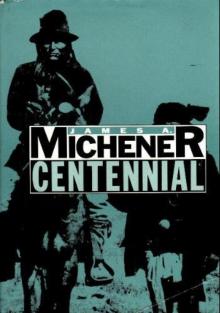 Centennial
Centennial Sports in America
Sports in America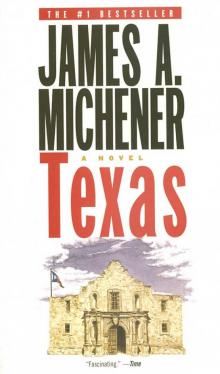 Texas
Texas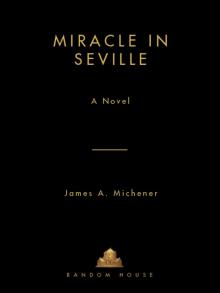 Miracle in Seville
Miracle in Seville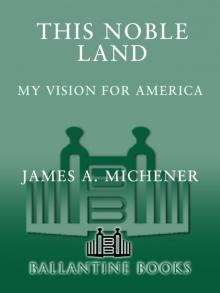 This Noble Land: My Vision for America
This Noble Land: My Vision for America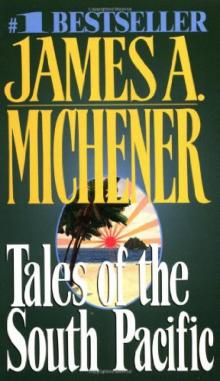 Tales of the South Pacific
Tales of the South Pacific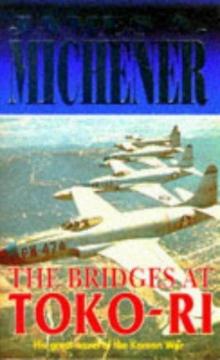 Bridges at Toko-Ri
Bridges at Toko-Ri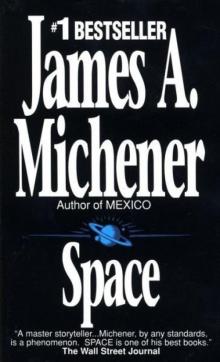 Space: A Novel
Space: A Novel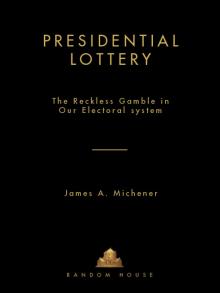 Presidential Lottery
Presidential Lottery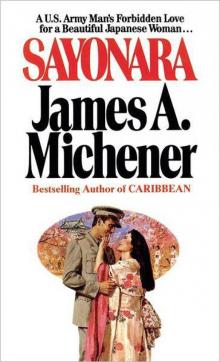 Sayonara: A Novel
Sayonara: A Novel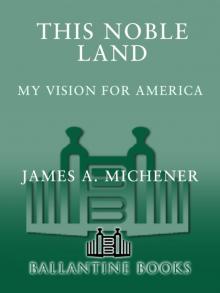 This Noble Land
This Noble Land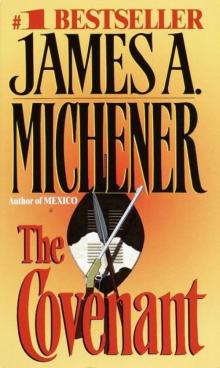 The Covenant: A Novel
The Covenant: A Novel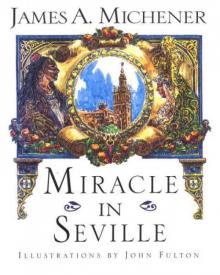 Miracle in Seville: A Novel
Miracle in Seville: A Novel The Bridge at Andau
The Bridge at Andau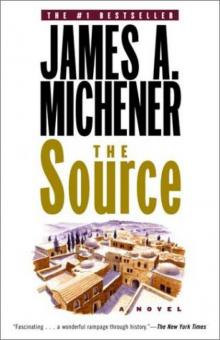 Source
Source The Source: A Novel
The Source: A Novel Journey
Journey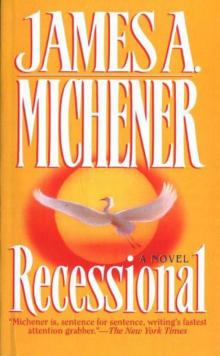 Recessional: A Novel
Recessional: A Novel Legacy: A Novel
Legacy: A Novel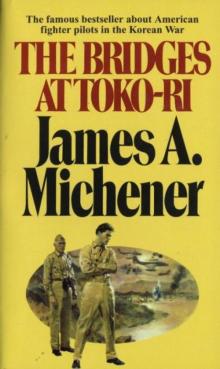 The Bridges at Toko-Ri: A Novel
The Bridges at Toko-Ri: A Novel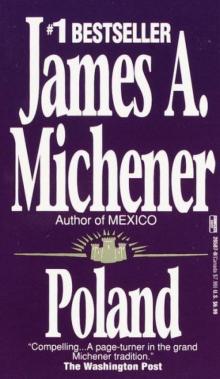 Poland: A Novel
Poland: A Novel